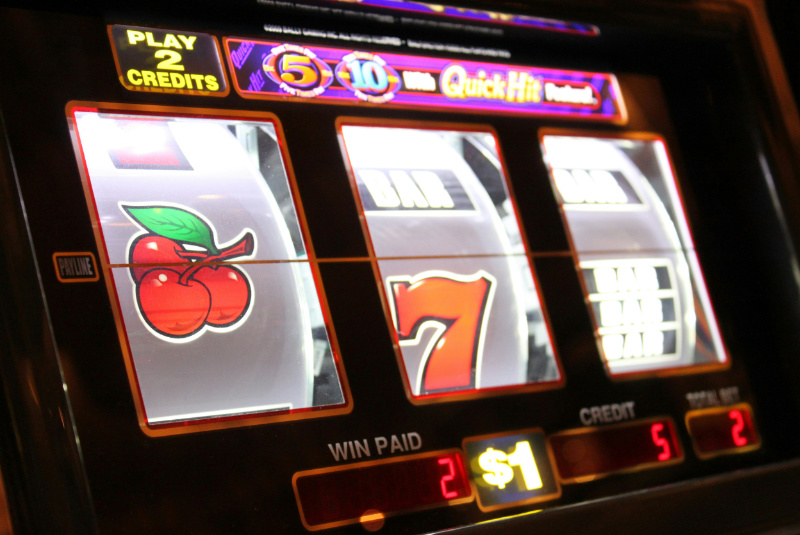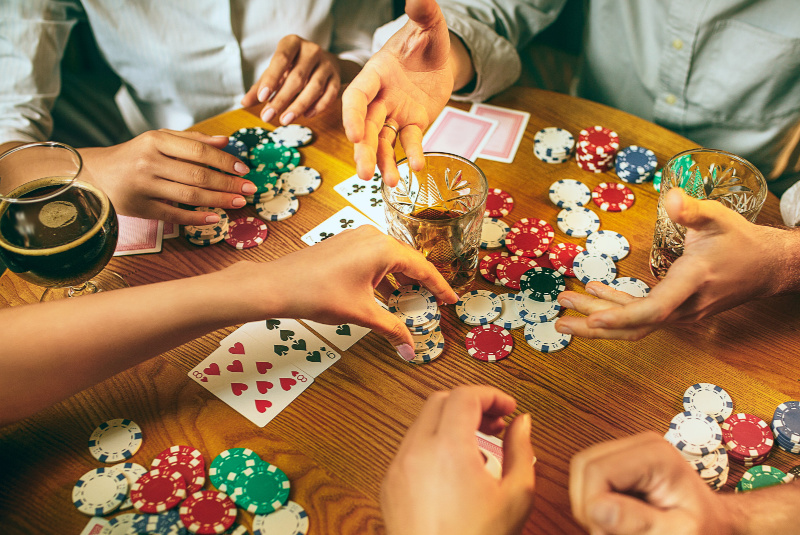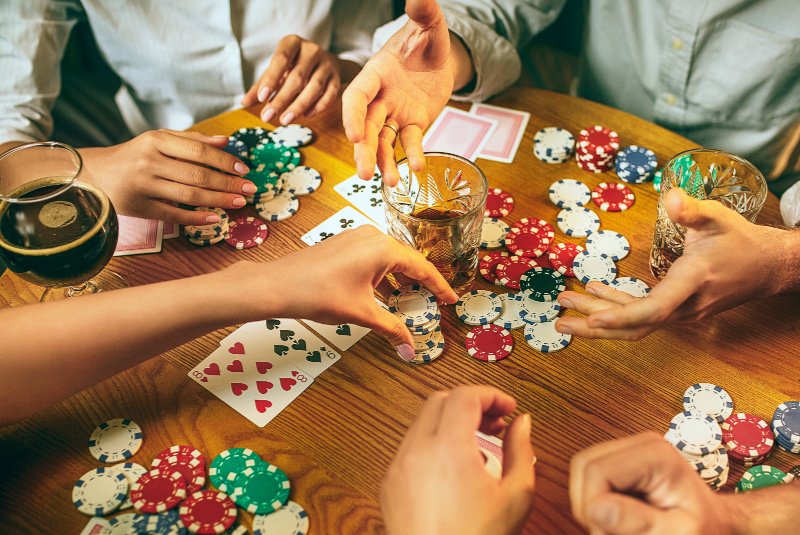What is gambling
Gambling, or gambling, is a form of entertainment that involves betting on an uncertain outcome with the aim of winning a monetary or material reward. The activity is as old as mankind itself and appears in cultures all over the world in various forms, from simple bets between friends to complex games in casinos and bookmakers.
What is gambling, how does gambling addiction arise, and when does gambling become a dangerous problem?
Article content
What is gambling
Gambling, or gambling, is a form of entertainment that involves betting on an uncertain outcome with the aim of winning a monetary or material reward. The activity is as old as mankind itself and appears in cultures all over the world in various forms, from simple bets between friends to complex games in casinos and bookmakers.
What is gambling, how does gambling addiction arise, and when does gambling become a dangerous problem?
What is gambling
Gambling, often referred to as a betting addiction, pathological or compulsive gambling, is a condition in which an individual loses control of his or her gambling, leading to negative consequences in personal, professional and financial life.
Gambling addiction is characterised by repeated problematic gambling that persists despite significant negative consequences. The consequences of gambling can include financial loss, bankruptcy, job loss, homelessness and the breakdown of personal relationships.
How to spot a gambler
A gambler can be recognised by a number of characteristics, including, but not limited to, a constant mindset of gambling, planning other games and ways to raise money to play. A gambler often increases the amount of money he or she bets in order to achieve the desired excitement and continues to gamble even after repeated financial losses.
Most people who gamble do not have a gambling problem, but some people become pathological gamblers at some point in their lives.
A pathological gambler cannot control the urge to gamble, even if it has negative consequences for both him and his loved ones. He will play whether he is at the top or the bottom, with or without money. He will play regardless of the consequences, even when he knows the odds are against him and he cannot afford to lose.
Diagnosis of pathological gambling
Gamblers Anonymous, an international community of people with gambling problems, offers a questionnaire to help identify the signs of pathological gambling.
Answers to these questions can help determine if a person has a gambling problem that requires professional help.
-
Have you missed work or school because of gambling?
-
Has gambling ever caused dissatisfaction in your household?
-
Has gambling affected your reputation?
-
Have you ever felt remorse after gambling?
-
Have you ever resorted to gambling to get money with which to pay off debts or otherwise solve your financial problems?
-
Has gambling caused a decline in ambition or effectiveness?
-
Have you felt after a loss that you had to quickly go back and win your losses back?
-
After winning, did you have a strong urge to go back and win more?
-
Did you gamble so often until you lost everything?
-
Did you ever borrow money to subsidize your gambling activities?
-
Have you ever sold something to subsidize your gambling activities?
-
Have you been reluctant to use "Gambling Money" for current expenses?
-
Has gambling led you to lose interest in your own welfare or the welfare of your family?
-
Have you ever gambled longer than you planned?
-
Have you ever resorted to gambling to escape fear, trouble, boredom, loneliness, sadness, or loss?
-
Have you ever committed or considered committing a crime to subsidise your gambling activities?
-
Has gambling caused you sleep problems?
-
Does an argument, disappointment, or frustration make you feel a compulsive need to gamble?
-
Have you ever had a strong urge to celebrate an achievement with a few hours of gambling?
-
Have you ever had self-destructive or suicidal thoughts as a result of gambling?
If there are 7 or more "yes" answers, the person has a gambling problem that they should begin to address and not be afraid to seek help for gambling treatment.

Image Source: Freepik
Myths and facts about gambling addiction
There are several myths about gambling addiction that need to be debunked and set straight at the outset. So let's take a look at the most common myths about problem gambling and add the facts to them according to HelpGuide.
Myth: You have to play every day to be a problem gambler.
Fact: A problem gambler can play often or rarely. Playing is a problem if it causes problems.
Myth: Problem gaming is not a real problem if the gamer can afford it.
Fact: Problems caused by excessive gambling are not just financial. Too much time spent gaming can also lead to relationship or legal problems, job loss, mental health problems including depression and anxiety, even suicide.
Myth: Having a gaming problem is just being weak-willed, irresponsible or unintelligent.
Fact: Gaming problems affect people of all intelligence levels and backgrounds. Responsible, strong-willed people are just as likely to develop a gambling problem as anyone else.
Myth: Partners of problem gamblers often lead their loved ones to gamble.
Fact: Problem gamblers often try to rationalise their behaviour. Blaming others is one way to avoid taking responsibility for their actions, including what it takes to overcome the problem.
Myth: If a problem gambler accumulates debt, you should help them take care of the debt.
Fact: Quick fixes may seem like the right thing to do. However, bailing a player out of debt can actually make things worse by allowing his playing problems to continue.

Image Source: Freepik
When is gaming fun and when is it a problem?
Gambling can be a form of entertainment when it is practiced responsibly and in moderation. The distinction between gambling as fun and gambling as a problem depends on several key factors that can help identify a gambling addiction.
Gambling as entertainment
-
Limited time and money: The individual sets firm limits on how much time and money he or she is willing to spend on gambling and adheres strictly to these limits.
-
No negative impact: Gambling does not negatively affect personal, family, financial or work life.
-
Control over gambling: The player is in full control of his/her gambling, can stop at any time and does not feel compulsive.
-
Playing for fun: The main motive for playing is fun and relaxation, not to win money or escape from problems.
Gambling as a problem
-
Loss of control: The individual is unable to control the frequency, duration or amount of money devoted to gambling.
-
Negative impact: Gambling has a negative impact on the individual's personal, family, financial or work aspects of life.
-
Compulsive need to play: Gambling becomes a compulsive need, the gambler feels a strong urge to gamble despite knowing the negative consequences.
-
Using play as an escape: The player uses play as a way to escape personal problems or unpleasant emotions.
-
Financial problems: The player gets into financial problems because of gambling, may go into debt or use the money for other purposes.
-
Social and relationship problems: Gambling causes conflicts with family and friends, can lead to isolation and loss of social ties.
If gambling moves from the category of fun to that of a problem, it is important to seek help and address the gambling addiction. There are various forms of support and treatment for gambling, including counselling, therapy and support groups that can help individuals overcome the problems associated with gambling.
Article Sources
-
Gambling Addiction and Problem Gambling I HelpGuide [online] [cited 2024 Mar 21]. Available from: https: //www.helpguide.org/articles/addictions/gambling-addiction-and-problem-gambling.htm
-
Gambling addiction I Healthdirect [online]. [cited 2024 Mar 21]. Available from: https: //www.healthdirect.gov.au/gambling-addiction
-
Pathological gambling I NZIP [online] [cited 2024 Mar 21]. Available from: https: //www.nzip.cz/clanek/255-gamblerstvi
-
Gambling or pathological (problem) gambling I Prev-Centre [online]. [cited 2024 Mar 21]. Available from: https: //www.prevcentrum.cz/informace-o-drogach/gambling-nebo-patologicke-problemove-hracstvi/
-
Problem Gamblers | CALPG [online] [cited 2024 Mar. 21]. Available from: https: //calpg.org/problem-gamblers

